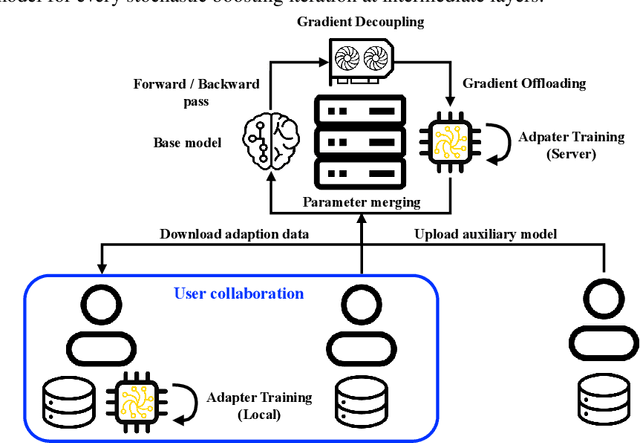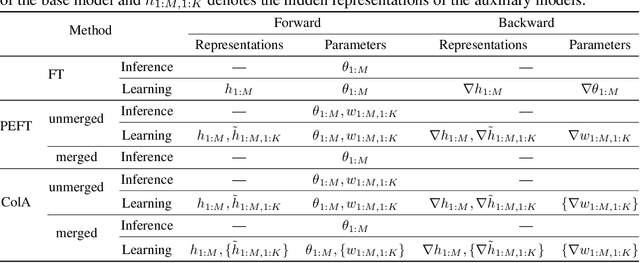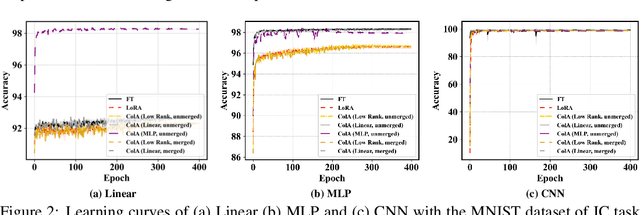ColA: Collaborative Adaptation with Gradient Learning
Paper and Code
Apr 22, 2024



A primary function of back-propagation is to compute both the gradient of hidden representations and parameters for optimization with gradient descent. Training large models requires high computational costs due to their vast parameter sizes. While Parameter-Efficient Fine-Tuning (PEFT) methods aim to train smaller auxiliary models to save computational space, they still present computational overheads, especially in Fine-Tuning as a Service (FTaaS) for numerous users. We introduce Collaborative Adaptation (ColA) with Gradient Learning (GL), a parameter-free, model-agnostic fine-tuning approach that decouples the computation of the gradient of hidden representations and parameters. In comparison to PEFT methods, ColA facilitates more cost-effective FTaaS by offloading the computation of the gradient to low-cost devices. We also provide a theoretical analysis of ColA and experimentally demonstrate that ColA can perform on par or better than existing PEFT methods on various benchmarks.
 Add to Chrome
Add to Chrome Add to Firefox
Add to Firefox Add to Edge
Add to Edge